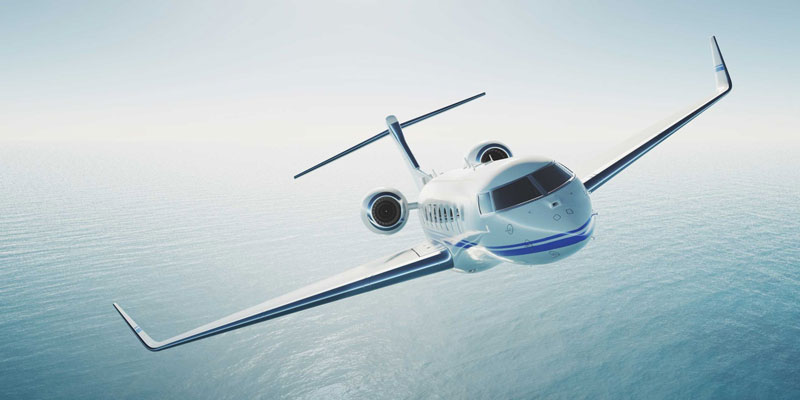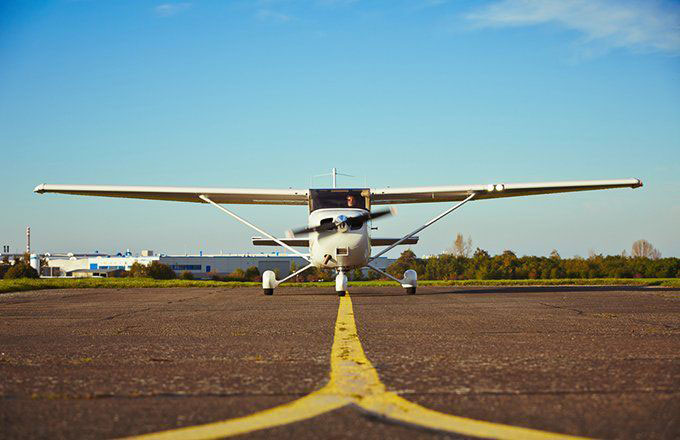Have you ever thought of the possibility of owning a small plane? If you're an aspiring pilot or already an experienced pilot, the idea is likely on your radar. The freedom to travel wherever you'd like in the air is among the most desirable types of freedom you could ever imagine. The fact that you own your own plane can also be an image of status for people. In addition to the ease of use and leisure opportunities that come from owning a small aircraft, many economic considerations are to think about. We'll look at the costs of owning a smaller plane. Apart from providing you with the comfort and enjoyment, you desire, owning a small plane is a source of responsibility, financial responsibility. The cost can rise, and the costs can range from the sale cost and the down payment to storage costs, repairs, insurance, and fuel expenses.
Upfront Costs
Ultralight planes can be the cheapest alternative. They are single-seat and single-engine aircraft that are perfect for private use. A light aircraft is typically purchased for new at around $8000 and $15,000. Single-engine planes are typically priced between $15,000 to $100,000. While single-engine planes tend to be more costly than ultralights, they can carry many passengers and are still quite affordable compared to other aircraft. Multi-engine planes tend to be costly and can cost 300,000 dollars or more, depending on the amenities. The greater cost comes from ensuring greater safety. If one engine is damaged during the flight, the other engine will be used to find an appropriate landing spot. Furthermore, multi-engine planes usually offer greater speed and efficiency.
Storage
If not used, planes have to be stored in an airport, either in hangars or outside. Storage outside is generally less expensive than hangars and other secured areas, but this is contingent on the area and the airport's location. Airports in urban areas typically cost more than rural airports of similar size. For a month, the average hangar cost is about $275, with an additional $100 for tiedown equipment. Additionally, storage facilities for residential aircraft are not often available to the typical small-sized aircraft owner.
Inspections and Maintenance
AOPA recommends the establishment of an escrow account for maintenance that will pay for a propeller, engine, avionics, and overhauls to the airframe. Contributing to this account every time you fly can help pay for unexpected costs that could occur. Smaller aircraft must undergo annual inspections. These vary in cost from $600 to $1200, and specialized aircraft with retractable landing gears are more expensive to check.
Insurance
Aviation insurance protects against damage to aircraft and is liable for all that your aircraft suffers. The amount of coverage is determined by the policy and the type of damage covered either in-flight or caused by external factors. If you are considering small insurance for aircraft, which ranges between $1,200 and $2,000 each year, you should speak with an Aviation insurance provider.

Gas and Oil
Smaller aircraft should receive oil change every four months or 50 hours, whichever is first. For the typical user, that's three oil changes each year. The typical tiny plane's fuel consumption rate ranges between five and 10 Gallon per hour. Aviation fuel is considerably higher than the typical automobile fuel, with an average of $5 per gallon.
Taxes and Registration Fees for Small Planes
Be aware that sales taxes in states and usage taxes could increase the total price of your tiny plane purchase. A Pilot's Guide to Taxes, produced by the Aircraft Owners and Pilots Association (AOPA), offers an informative overview. For detailed advice, consult a tax professional. The Federal Aviation Administration (FAA) requires all aircraft owners to sign up for their aircraft and then re-register every three years (for the cost of $5 to re-register). Furthermore, certain states have smaller aircraft registration requirements and charges, so make certain to research the requirements for your state.
The Advantages of Having a Plane

One of the greatest advantages to having a plane is that you'll reduce the time spent on your flight and eliminate the anxiety that comes with the journey to the airport. If you fly commercially, it is not just necessary to be at the airport hours before departure time, but you'll also need to stand in line to go through your luggage as you go through security and just wait until the flight can depart. Having your plane and avoiding these common airport issues is not a difficult task. The plane you own allows you to travel wherever you like, anytime you'd like. This lets you make last-minute reservations to the destination you prefer and can even make it easier to take your family and friends with you on your excursion. If you choose to travel with friends or relatives, you will need to think about your plane's space.







